Wednesday, April 29, 2009
Monday, April 27, 2009
Lifeline Called at 5:30AM
Lineline (Emergency Response Company) called me at 5:30AM to notify me Annie had called for help because Dad had fallen and could not get up. They dispatched a team to help him back to bed.
I was relieved it was only Lifeline calling to report a solution.
I was relieved it was only Lifeline calling to report a solution.
Sunday, April 26, 2009
Remembering Mom

Lorraine Joan Hoskins Scott
May 24, 1915-April 26, 2008
Lorraine Joan Hoskins Scott, a generous, glamorous, fun-loving, loyal, creative American was born May 24, 1915 in Greenville Mississippi. Her parents were Solomon (b. 1884) and Ella Nora Hoskins (b. 1895). She had a brother Theodore Roosevelt Hoskins, born in 1911, who preceded her in death.
She attended Sacred Heart in Greenville Mississippi, where she was baptized Catholic in 1929.
As a girl she loved to play basketball, entertain her friends, and read.
Lured by the promise of opportunity for a better life in the North, she traveled with the Great Migration to Chicago in her 20s to find work. Always a caretaker, eventually, she sent for her mother, her brother, other family members, and even her best friend, Estelle Bivens. She assisted the newcomers in finding housing and work in her newfound home. She loved Chicago.
Lorraine worked several housekeeping jobs before landing a job at Western Electric, (the manufacturing arm of AT&T) in 1943 at age 28. The job provided steady income, full medical benefits, full pension, and union membership-- a real prize for a young Black girl from the Deep South. After working dutifully for 25 years, in 1968, she retired to be an at-home-Mom.
When she met William Arthur Scott, in 1943, it was love at first sight for both of them. Lifelong soul mates, Lorraine and William married, April 9, 1944 and celebrated 64 years of marriage this year.
Eventually, William joined Lorraine at work at Western Electric, where they commuted daily together for more than two decades.
Although their lives were full and rich, in their comfortable house on Chicago’s South Side, they had an empty space in their hearts. They adopted two baby girls, Stephanie, and Karla in 1962 and enveloped them with love.
Their goal as parents was to provide lots of love, educational opportunities, material comfort, fun, and spiritual guidance They even got pets for the first time in their married lives, so their children could enjoy the experience. Included in their gifts to their children were Catholic schools, Girl Scouts, the 4-H club, ballet lessons, piano lessons, and college.
Her greatest loss was when her daughter, Stephanie Katrina, passed away in 1983.
Lorraine was known as a generous soul who helped countless individuals, numerous charities, and her church, St. Dorothy's.
She was a member of several social organizations including Jolly Cliques, Christian Youth Fellowship, Ladies Guild, Le Players, the Knights of Peter Claver Women’s Auxiliary, and the Avalon Swingers (seniors) Dance Troop. She volunteered annually for La Rabida Children’s hospital for many years.
Always full of energy, she loved line dancing, and danced regularly with senior citizens dance groups, throughout Chicago up until she suffered a stroke in 2005. She was even featured on local television networks, performing with her dance group, The Avalon Swingers. When interviewed by broadcast journalists, she expressed her joy for living.
Lorraine traveled extensively in the US and to Greece, China, Israel, the Caribbean, and the Mediterranean.
She is survived by her husband William Arthur Scott (b. 1913) and her daughter Karla Joy Scott.
Also, she has a niece, Laverne Hadley, two grand nephews, Craig and Doug Anderson, and a grandniece, Lisa Anderson Hawkins.
Her closest friends are Estelle Bivens Buser and Juanita. Estelle Bivens Buser has been a lifelong friend. She and Juanita Blakey were like sisters to Lorraine.
Lorraine had a positive impact on the lives of everyone she touched. She will always be remembered as colorful, generous, stylish, loving and warm.
Saturday, April 25, 2009
Tommorrow is the anniversary of losing Mom
That explains my profound free-floating anxiety. I dread getting that "5AM call" about Dad!
Wednesday, April 15, 2009
Fighting Resistance From Seniors

Here is a helpful article written by Peter Ganther
Uprooting an elderly loved one and moving them into your home is difficult enough, but add to that the resistance you may receive, and the caregiving becomes an all-encompassing activity. Your loved one’s natural tendency is to resist care and assistance, if only because they do not want to think of themselves as “old.” Often caregivers will become easily angered and irritated at the thought of a loved one refusing care and this conflict can be very damaging to the entire caregiver-care recipient experience. Understanding the stress and loss of independence your relative faces when they give up their home is the first step in easing the tense situation. Here are a few other ideas that may be helpful if you are experiencing any resistance in your daily caregiving.
Allow the loved one to have a part in the decision making process surrounding their care and well-being. Do not let them feel they have no part in their future, and allow them the chance to voice their view about they care they would like to receive.
The senior may want to start a fight or bring up past actions that occurred, but remain focused on the matter of their care, and do not take part and say anything you may regret later.
Remember to think of your own needs, and set limits in the amount of work your willing to take on. Perhaps you provide the in-home care for them, but are unwilling to bathe them, yet your loved one refuses to allow a home-care aide to assist you. Explaining your feelings to your relative and being honest with what your willing to help with can allow you the control of the situation.
Be willing to work with the senior in order to find some kind of agreement. Whether they refuse full-time care and you disagree entirely, consider alternatives such as a weekly visit from a health aide and Meals on Wheels service that may ease tension and be agreed upon by both of you.
Realize that they are more than likely not going to be happy about the situation, and focus on maintaining the quality of care. They may not look forward to having someone bathe them and cook for them, but you can see a difference in their care and let the senior in time grow accustom to the change.
Do not make the situation entirely about them, instead allow them to see it through your eyes to get an idea the work you put forth. Tell them the stress and workload you face and their understanding and willingness to resist you in the future may be lessened. They will look at it as an opportunity to help you in the process of them receiving the aid.
Work up to changing your loved one’s life and do not suddenly start changing everything they have grown accustomed to over the years. Alert them to any fears you may have, prepare them for any changes, and be as calm and positive as possible to reassure them it is for the best.
Plan ahead in case of a sudden decline in health or hospitalization, because it is at these moments where you may face little resistance and can alter their daily care in the manner you see appropriate.
Tuesday, April 14, 2009
Online Caregiver Support Groups Really Do Help!
Here is a helpful post on caregiver.com:
Name: Sandy White
Location: Wellington, Florida
Date: 11/15/2008
Time: 04:33 PM
Comments
I'm so glad I joined several support groups and feel sorry for those who stay away. Our support groups aren't "pity parties" but sources of good information to what are our options in recovery, what does it cost, how did it work, where are they located, who is the best. This is especially important if you are on an HMO. HMOs are notoriously poor on treating long term disability. They require their doctors to sign a gag order that the doctor won't tell you about any option that your HMO doesn't cover. And because an HMO is constantly making new contracts with providers, sometimes the best are still on their approved list but not mentioned because the HMO negotiated a lower price with a newer provider. If you find out about a more effective therapy, call that provider's office direct and ask if they accept your HMO or insurance. HMO Advantage ads tell you what they offer that Medicare doesn't, but they don't tell you what they don't that Medicare will cover. And because they are the gate keepers you can't get all your possible Medicare coverage. Don't believe them when they tell you you have reached your "life time limit of physical therapy under Medicare." Medicare only has yearly limits and the next year you can get more therapy if you can still make progress with it. Support groups can wise you up to nuances like that. And they can tell you about many government sponsored services that are not advertised. In the scheme of things, programs getting government funding can't use those funds for advertising because it takes money away from direct services. If you see a god government program, jump on it immediately because the value of that program is judged by the number of people who found it and used it. Without advertising, many only last one or two years, so may be gone if you delay, regardless of their quality.
Name: Sandy White
Location: Wellington, Florida
Date: 11/15/2008
Time: 04:33 PM
Comments
I'm so glad I joined several support groups and feel sorry for those who stay away. Our support groups aren't "pity parties" but sources of good information to what are our options in recovery, what does it cost, how did it work, where are they located, who is the best. This is especially important if you are on an HMO. HMOs are notoriously poor on treating long term disability. They require their doctors to sign a gag order that the doctor won't tell you about any option that your HMO doesn't cover. And because an HMO is constantly making new contracts with providers, sometimes the best are still on their approved list but not mentioned because the HMO negotiated a lower price with a newer provider. If you find out about a more effective therapy, call that provider's office direct and ask if they accept your HMO or insurance. HMO Advantage ads tell you what they offer that Medicare doesn't, but they don't tell you what they don't that Medicare will cover. And because they are the gate keepers you can't get all your possible Medicare coverage. Don't believe them when they tell you you have reached your "life time limit of physical therapy under Medicare." Medicare only has yearly limits and the next year you can get more therapy if you can still make progress with it. Support groups can wise you up to nuances like that. And they can tell you about many government sponsored services that are not advertised. In the scheme of things, programs getting government funding can't use those funds for advertising because it takes money away from direct services. If you see a god government program, jump on it immediately because the value of that program is judged by the number of people who found it and used it. Without advertising, many only last one or two years, so may be gone if you delay, regardless of their quality.
Sunday, April 5, 2009
Letter From a Senior: We need help, Mr. Obama
A Miami senior sent the following letter to the Miami Herald today:
Seniors also need help, Mr. Obama
BY CLAIRE MITCHEL
We are a new demographic population: The Third Third. We are an elderly population that's living long beyond expectations -- sometimes living long beyond quality of life.
We are blowing the actuarial tables, still living and breathing. The medical profession may take credit for some of our longevity, and we can thank increased sanitation, safety and nutrition efforts that have improved over the years.
To whatever we want to credit our longer lives, we are living healthier, longer, supposedly happier lives. At least we try to make them happier.
Times are difficult for many in this economy. Now that I'm living in an adult congregate living facility, my finances are skewed. I don't directly buy the food I eat, and it's lumped in with other expenses like transportation, exercise and entertainment.
So when I recently accompanied a friend to the supermarket, I was surprised to see what her wallet was up against. While there, I took a look at some of the new cooking pots, pans and equipment. I think I'd have to take a class to use some of these.
Feeling deflated in my knowledge of grocery shopping and cooking acuity in today's economy, I turned my research to another section of the store, the cleaning aisle.
I noticed the box of laundry soap had shrunk. It had the same logo and the same eye-catching coloring but the package was seemingly half as before. ''Double strength,'' the label declared. In reality, it didn't perform that way in my wash, although I'm sure it must have in their lab.
Trying to maintain quality of life as we get older, we send this message to President Barack Obama: Hold onto the billons of dollars you may so nobly offer to the auto companies who have had the run of the road for the past decade. Instead, consider the needs of those of us in The Third Third for coffee and soap powder and give us a break. We have sustained our dignity, but now our bank account is nearly dry and we have no reservoir to tap.
We've raised our families, educated them and showed them how to save for tomorrow by buying a house for the future. We've often invested with them. And now we see there's nowhere to go, not even to the family we raised. Many of our children have needed money from us to get by. Help us get through this.
We who lived through the Great Depression and two world wars beseech you to throw us a lifeline -- or at least a little hope to buoy us in the Third Third.
Write to Claire Mitchel in care of The Miami Herald at 2010 NW 150th Ave., Pembroke Pines, FL 33028.
Seniors also need help, Mr. Obama
BY CLAIRE MITCHEL
We are a new demographic population: The Third Third. We are an elderly population that's living long beyond expectations -- sometimes living long beyond quality of life.
We are blowing the actuarial tables, still living and breathing. The medical profession may take credit for some of our longevity, and we can thank increased sanitation, safety and nutrition efforts that have improved over the years.
To whatever we want to credit our longer lives, we are living healthier, longer, supposedly happier lives. At least we try to make them happier.
Times are difficult for many in this economy. Now that I'm living in an adult congregate living facility, my finances are skewed. I don't directly buy the food I eat, and it's lumped in with other expenses like transportation, exercise and entertainment.
So when I recently accompanied a friend to the supermarket, I was surprised to see what her wallet was up against. While there, I took a look at some of the new cooking pots, pans and equipment. I think I'd have to take a class to use some of these.
Feeling deflated in my knowledge of grocery shopping and cooking acuity in today's economy, I turned my research to another section of the store, the cleaning aisle.
I noticed the box of laundry soap had shrunk. It had the same logo and the same eye-catching coloring but the package was seemingly half as before. ''Double strength,'' the label declared. In reality, it didn't perform that way in my wash, although I'm sure it must have in their lab.
Trying to maintain quality of life as we get older, we send this message to President Barack Obama: Hold onto the billons of dollars you may so nobly offer to the auto companies who have had the run of the road for the past decade. Instead, consider the needs of those of us in The Third Third for coffee and soap powder and give us a break. We have sustained our dignity, but now our bank account is nearly dry and we have no reservoir to tap.
We've raised our families, educated them and showed them how to save for tomorrow by buying a house for the future. We've often invested with them. And now we see there's nowhere to go, not even to the family we raised. Many of our children have needed money from us to get by. Help us get through this.
We who lived through the Great Depression and two world wars beseech you to throw us a lifeline -- or at least a little hope to buoy us in the Third Third.
Write to Claire Mitchel in care of The Miami Herald at 2010 NW 150th Ave., Pembroke Pines, FL 33028.
Subscribe to:
Posts (Atom)

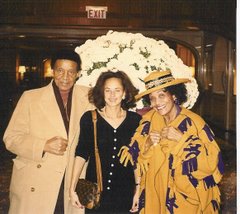
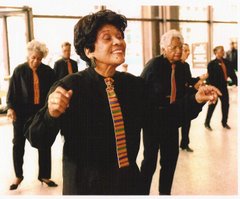
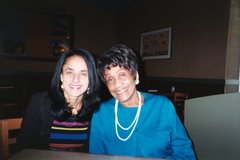
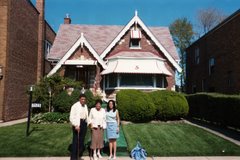
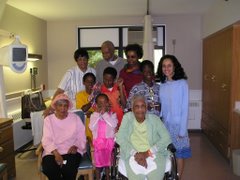

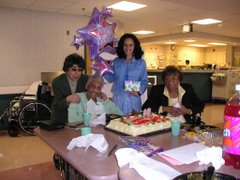
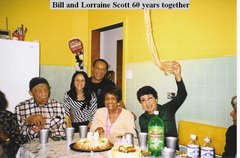
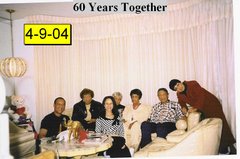
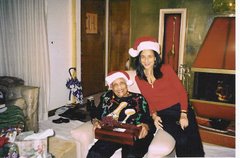
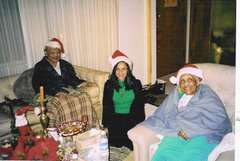
.jpg)